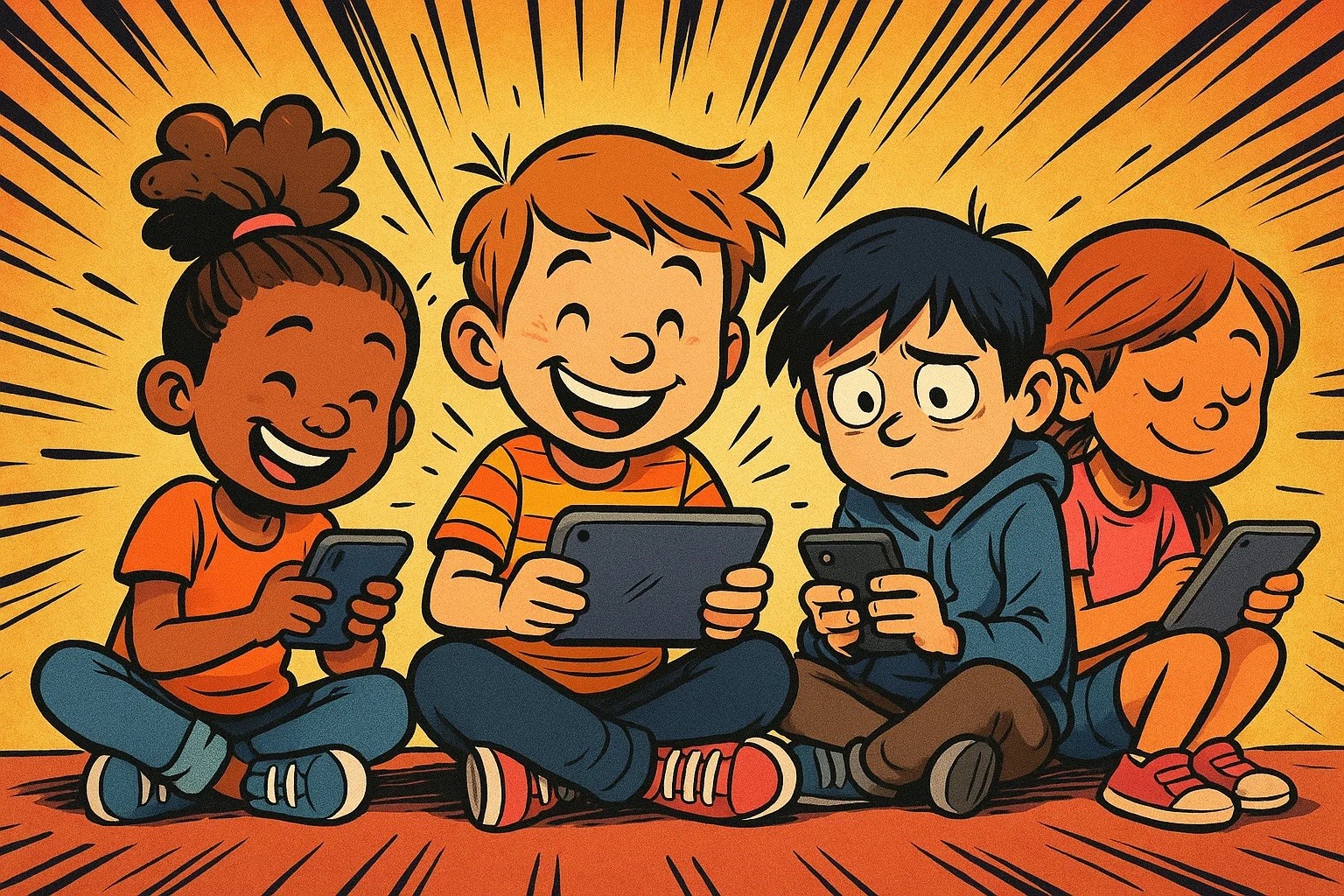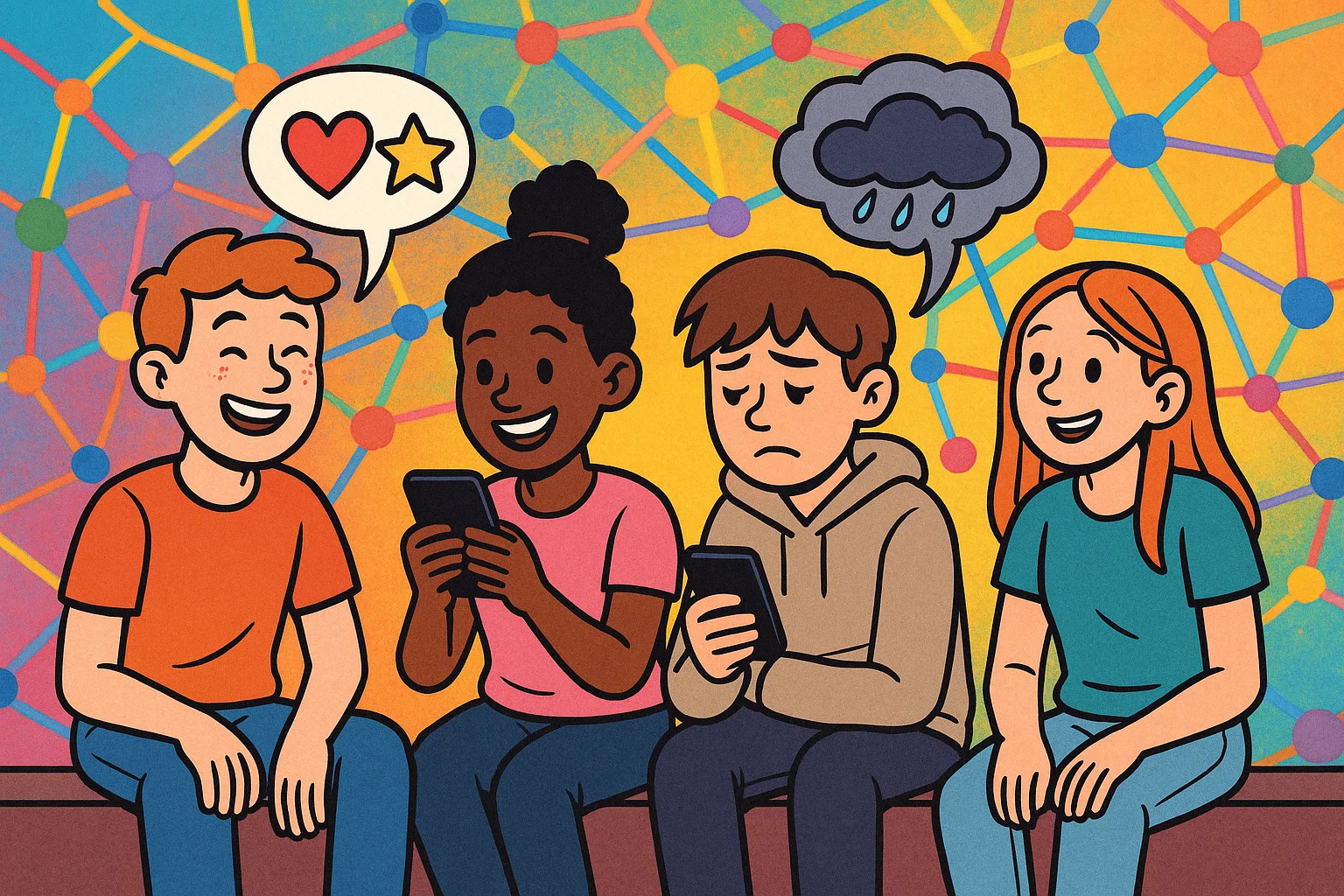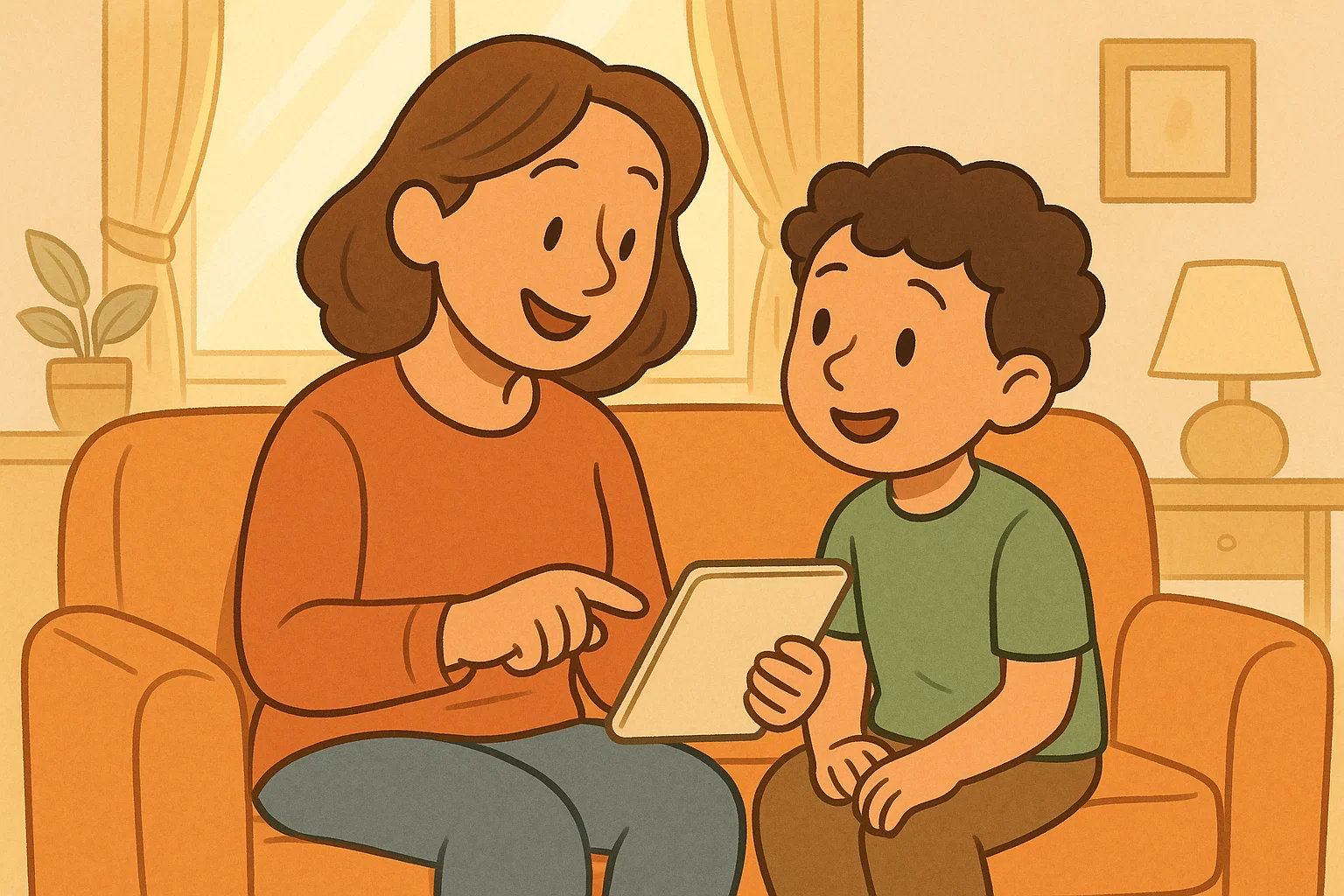Social Media and Kids Mental Health: A Parent’s Guide

In today’s digital landscape, understanding the complex relationship between online platforms and mental health has become essential for parents navigating their children’s digital experiences. With kids spending increasing amounts of time on various platforms, the impact on their psychological wellbeing deserves careful examination and thoughtful parental guidance.
Social Media Impact on Mental Health 📱

The relationship between online platform usage and mental health in children presents a nuanced picture that requires balanced understanding.
Positive Effects
Online platform usage can offer valuable benefits when kids engage with digital spaces in healthy ways. These online environments may help children:
Building Online Connections: Many people find that digital platforms enable kids to maintain friendships, especially during times when in-person interactions are limited. Young people often use these platforms to stay connected with classmates and family members across distances.
Learning and Information Sharing: Educational content on various platforms can support learning experiences. Kids may discover new interests, access educational resources, and engage with informative content that complements their school curriculum.
Creative Expression: Online platforms provide outlets for artistic and creative pursuits. Children can share their artwork, writing, music, or other creative projects, potentially building confidence and receiving constructive feedback from peers.
Identity Development: For adolescents navigating identity formation, digital platforms can offer spaces to explore different aspects of their personalities and connect with others who share similar interests or experiences.
| Positive Aspects | Benefits for Kids |
| Social Connection | Maintained friendships, family contact |
| Learning Opportunities | Educational content, skill development |
| Creative Outlets | Artistic expression, talent showcase |
| Identity Exploration | Self-discovery, community finding |
Negative Effects
Despite potential benefits, excessive or problematic social media use may lead to concerning impacts on kids’ mental health. Here are several areas of concern:
Sleep Disruption: Extended screen time, particularly before bedtime, can interfere with healthy sleep patterns. The blue light from devices may affect melatonin production, leading to difficulty falling asleep and reduced sleep quality.
Body Image Concerns: Exposure to filtered images and idealized representations on social media platforms can contribute to negative body image, particularly among teens. Young people may develop unrealistic expectations about appearance and engage in harmful comparison behaviors.
Cyberbullying and Online Harassment: Social media can unfortunately become a venue for bullying behaviors. Kids may experience harassment, exclusion, or targeted negative comments that can significantly impact their emotional wellbeing.
Attention and Focus Challenges: The constant notifications and rapid content consumption associated with social media use may affect children’s ability to concentrate on tasks, homework, and face-to-face interactions.
Fear of Missing Out (FOMO): Social media can amplify feelings of exclusion when kids see others’ activities, potentially leading to anxiety and dissatisfaction with their own experiences.
Connection to Depression 💭
The relationship between social media and mental health conditions like depression requires careful consideration. While social media doesn’t directly cause depression, certain usage patterns may contribute to or exacerbate mental health challenges.
Studies suggest that passive consumption of social media content – simply scrolling without meaningful interaction – may be associated with increased depressive symptoms in some teens. The comparison culture fostered by many social media platforms can contribute to feelings of inadequacy or low self-worth.
However, it’s important to note that social media use affects each child differently. Factors such as personality, existing mental health status, family support, and the specific nature of online interactions all influence outcomes. Parents should watch for signs that may indicate their child’s social media use is negatively impacting their mental health, including:
- Withdrawal from family activities
- Changes in sleep patterns
- Declining academic performance
- Increased irritability or mood swings
- Loss of interest in previously enjoyed offline activities
A Parent’s Guide 👨👩👧👦

Navigating your child’s relationship with social media requires intentional strategies and ongoing communication. Parents can take proactive steps to help kids develop healthy digital habits while minimizing potential negative effects.
Setting Rules
Establishing clear guidelines for social media use helps create structure and promotes responsible online behavior. Effective rules should be:
Age-Appropriate: Consider your child’s developmental stage when determining which social media platforms are suitable. Many platforms have minimum age requirements that should be respected.
Time-Based: Set specific limits on daily social media use. Research posted on ScienceDirect suggests that moderate use (1-2 hours daily) is less likely to negatively impact mental health compared to excessive usage.
Context-Specific: Establish device-free zones and times, such as during meals, family activities, and before bedtime. This helps ensure that social media doesn’t interfere with important family time and healthy sleep habits.
Platform-Specific: Different social media platforms carry different risks and benefits. Parents should understand the unique features and potential concerns associated with each platform their child wishes to use.
Example family media rules might include:
- No social media use during homework time
- Devices charged outside bedrooms overnight
- Weekly family discussions about online experiences
- Regular review of friend lists and followers
Open Communication
Maintaining ongoing dialogue about social media experiences helps parents stay informed about their child’s online world while building trust and providing guidance.
Ask Open-Ended Questions: Instead of yes/no questions, try: “What was interesting about your online interactions today?” or “How did that post make you feel?”
Share Your Own Experiences: When appropriate, parents can share their own social media experiences or concerns, helping kids understand that adults also navigate digital challenges.
Listen Without Immediate Judgment: If your child shares a concerning online experience, focus first on listening and understanding rather than immediately imposing restrictions.
Discuss Digital Citizenship: Help kids understand concepts like privacy, respectful communication, and the permanence of online content.
Regular family conversations about social media help normalize discussions about online experiences and make it easier for kids to approach parents when problems arise.
Leading by Example
Children often model their parents’ behavior, making adult social media habits particularly influential. Parents can demonstrate healthy social media use by:
Practicing Mindful Usage: Be intentional about your own social media consumption, avoiding mindless scrolling and prioritizing meaningful interactions.
Maintaining Balance: Show kids that social media is just one part of a well-rounded life by engaging in offline activities, hobbies, and face-to-face relationships.
Handling Conflicts Constructively: If you encounter online disagreements or negative content, demonstrate how to respond thoughtfully rather than reactively.
Respecting Privacy: Ask permission before posting photos or information about family members, teaching kids about consent and digital privacy.
Getting Help 🆘
Sometimes professional support becomes necessary when social media use significantly impacts a child’s mental health. Parents should consider seeking help if they notice:
- Persistent symptoms of depression or anxiety
- Significant changes in eating or sleeping patterns
- Academic performance decline
- Social withdrawal from family and friends
- Expressions of self-harm or suicidal thoughts
Mental health professionals experienced in adolescent development and digital wellness can provide valuable support for both children and families. Many therapists now specialize in helping young people develop healthy relationships with technology while addressing any underlying mental health concerns.
School counselors, pediatricians, and family therapists can serve as initial points of contact for parents seeking guidance. Don’t hesitate to reach out when your parental instincts suggest that professional support might benefit your child.
FAQ
How much social media use is considered safe for kids?
Research from the Journal of Technology in Behavioral Science suggests that moderate social media use – typically 1-2 hours per day – is less likely to negatively impact mental health compared to excessive usage. However, the quality of interactions matters more than quantity. Active, positive engagement tends to be healthier than passive scrolling. Parents should also consider their individual child’s personality, age, and overall wellbeing when determining appropriate limits.
At what age should children be allowed to use social media platforms?
Most major social media platforms require users to be at least 13 years old, though enforcement varies. Beyond legal requirements, parents should consider their child’s emotional maturity, ability to understand privacy concepts, and capacity to handle potential negative interactions. Some families find success with graduated introduction – perhaps starting with family-friendly platforms or supervised use before allowing independent access.
What warning signs indicate that social media might be harming my child's mental health?
Key warning signs include significant mood changes after social media use, withdrawal from offline activities and relationships, sleep disruption, declining academic performance, and expressions of negative self-comparison. Physical symptoms like headaches or stomachaches without clear medical causes may also indicate social media-related stress. Trust your parental instincts – if your child seems consistently more anxious, sad, or irritable in connection with their online activities, it may be time to reassess their social media use and potentially seek professional guidance.
